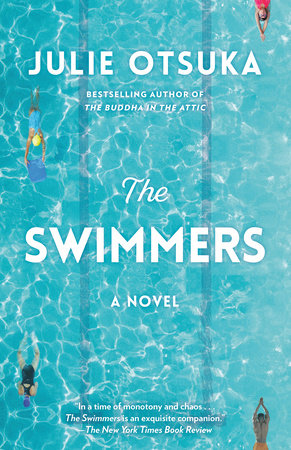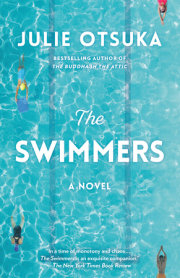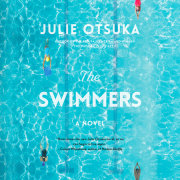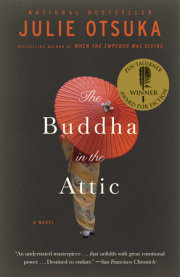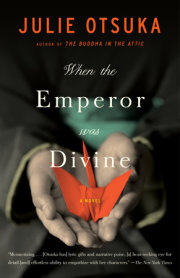The Underground Pool
The pool is located deep underground, in a large cavernous chamber many feet beneath the streets of our town. Some of us come here because we are injured, and need to heal. We suffer from bad backs, fallen arches, shattered dreams, broken hearts, anxiety, melancholia, anhedonia, the usual aboveground afflictions. Others of us are employed at the college nearby and prefer to take our lunch breaks down below, in the waters, far away from the harsh glares of our colleagues and screens. Some of us come here to escape, if only for an hour, our disappointing marriages on land. Many of us live in the neighborhood and simply love to swim. One of us—Alice, a retired lab technician now in the early stages of dementia—comes here because she always has. And even though she may not remember the combination to her locker or where she put her towel, the moment she slips into the water she knows what to do. Her stroke is long and fluid, her kick is strong, her mind clear. “Up there,” she says, “I’m just another little old lady. But down here, at the pool, I’m myself.”
MOST DAYS AT THE POOL, we are able to leave our troubles on land behind. Failed painters become elegant breaststrokers. Untenured professors slice, shark-like, through the water, with breathtaking speed. The newly divorced HR Manager grabs a faded red Styrofoam board and kicks with impunity. The downsized adman floats, otter-like, on his back, as he stares up at the clouds on the painted pale blue ceiling, thinking, for the first time all day long, of nothing. Let it go. Worriers stop worrying. Bereaved widows cease to grieve. Out-of-work actors unable to get traction above ground glide effortlessly down the fast lane, in their element, at last. I’ve arrived! And for a brief interlude we are at home in the world. Bad moods lift, tics disappear, memories reawaken, migraines dissolve, and slowly, slowly, the chatter in our minds begins to subside as stroke after stroke, length after length, we swim. And when we are finished with our laps we hoist ourselves up out of the pool, dripping and refreshed, our equilibrium restored, ready to face another day on land.
UP ABOVE THERE ARE wildfires, smog alerts, epic droughts, paper jams, teachers’ strikes, insurrections, revolutions, blisteringly hot days that never seem to let up (Massive “Heat Dome” Permanently Stalled over Entire West Coast), but down below, at the pool, it is always a comfortable eighty-one degrees. The humidity is sixty-five percent. The visibility is clear. The lanes are orderly and calm. The hours, though limited, are adequate for our needs. Some of us arrive shortly upon waking, fresh towels draped over our shoulders and rubber goggles in hand, ready for our eight a.m. swim. Others of us come down in the late afternoon, after work, when it is still sunny and bright, and when we reemerge it is night. The traffic has thinned. The backhoes have quieted. The birds have all gone away. And we are grateful to have avoided, once more, the falling of dusk. It’s the one time I can’t bear being alone. Some of us come to the pool religiously, five times a week, and begin to feel guilty if we miss even a day. Some of us come every Monday, Wednesday and Friday at noon. One of us comes a half hour before closing and by the time she changes into her suit and gets into the water it’s time to get out. Another of us is dying of Parkinson’s disease and just comes when he can. If I’m here then you know I’m having a good day.
THE RULES AT THE POOL, though unspoken, are adhered to by all (we are our own best enforcers): no running, no shouting, no children allowed. Circle swimming only (direction counterclockwise, always keeping to the right of the painted black line). All Band-Aids must be removed. No one who has not taken the compulsory two-minute shower (hot water, soap) in the locker room may enter the pool. No one who has an unexplained rash or open wound may enter the pool (the menstruating among us, however, are excepted). No one who is not a member of the pool may enter the pool. Guests are permitted (no more than one per member at a time), but for a nominal daily fee. Bikinis are permitted but not encouraged. Bathing caps are required. Cell phones are forbidden. Proper pool etiquette must be observed at all times. If you cannot keep up the pace you must stop at the end of your lane to let the swimmer behind you pass. If you want to pass someone from behind you must tap them once on the foot to warn them. If you accidentally bump into another swimmer you must check to make sure that they are all right. Be nice to Alice. Obey the lifeguard at all times. Turn your head at regular intervals and remember, of course, to breathe.
IN OUR "REAL LIVES” up above, we are overeaters, underachievers, dog walkers, cross-dressers, compulsive knitters (Just one more row), secret hoarders, minor poets, trailing spouses, twins, vegans, “Mom,” a second-rate fashion designer, an undocumented immigrant, a nun, a Dane, a cop, an actor who just plays a cop on TV (“Officer Mahoney”), a winner of the green card lottery, a two-time nominee for Outstanding Professor of the Year, a nationally ranked go player, three guys named George (George the podiatrist, George the nephew of the disgraced financier, George the former welterweight Golden Gloves boxer), two Roses (Rose, and the Other Rose), one Ida, one Alice, one self-described nobody (Don’t mind me), one former member of the SDS, two convicted felons, addicted, enabled, embattled, embittered, out of print, out of luck (I think I just seroconverted), in the twilight of lackluster real estate careers, in the middle of long and protracted divorces (It’s year seven), infertile, in our prime, in a rut, in a rush, in remission, in the third week of chemo, in deep and unrelenting emotional despair (You never get used to it), but down below, at the pool, we are only one of three things: fast-lane people, medium-lane people or the slow.
THE FAST LANE PEOPLE are the alpha people of the pool. They are high-strung and aggressive and supremely confident in their stroke. They look excellent in their swimsuits. Anatomically, they tend to be mesomorphs who carry an extra pound or two of fat for enhanced flotation. They have broad shoulders and long torsos and are equally divided between women and men. Whenever they kick, the water churns and boils. It is best to stay out of their way. They are natural-born athletes blessed with both rhythm and speed and have an uncanny feel for the water that the rest of us lack.
THE MEDIUM-LANE PEOPLE are visibly more relaxed than their fast-lane brethren. They come in all sizes and shapes and have long ago given up any dreams they may have once harbored of swimming in a faster and better lane. No matter how hard they try, it’s not going to happen, and they know it. Every once in a while, however, one of them will succumb to a bout of furious kicking, a sudden and involuntary windmilling of the arms and legs as though they thought, for a moment, that they could somehow defy their fate. But the moment never lasts for long. Legs soon tire out, strokes shorten, elbows droop, lungs begin to ache, and after a length or two they return to their normal everyday pace. That’s just the way it is, they say to themselves. And then amiably, affably—Just pulling your leg, guys!—they swim on.
THE SLOW-LANE PEOPLE tend to be older men who have recently retired, women over the age of forty-nine, water walkers, aqua joggers, visiting economists from landlocked emerging third-world countries where, we have heard, they are only just now learning how to swim (It’s the same with their driving), and the occasional patient in rehab. Be kind to them. Make no assumptions. There are many reasons they might be here: arthritis, sciatica, insomnia, a brand-new titanium hip, aching feet worn out from a lifetime of pounding on dry land. “My mother told me never to wear high heels!” The pool is their sanctuary, their refuge, the one place on earth they can go to escape from their pain, for it is only down below, in the waters, that their symptoms begin to abate. The moment I see that painted black line I feel fine.
Copyright © 2022 by Julie Otsuka. All rights reserved. No part of this excerpt may be reproduced or reprinted without permission in writing from the publisher.

